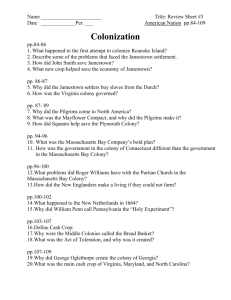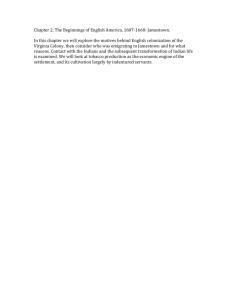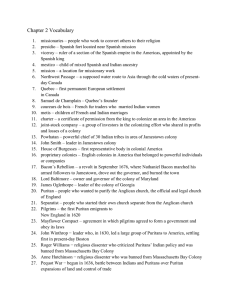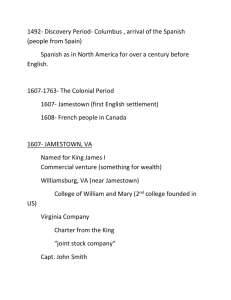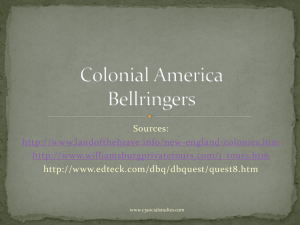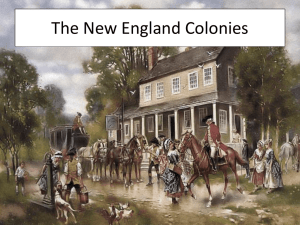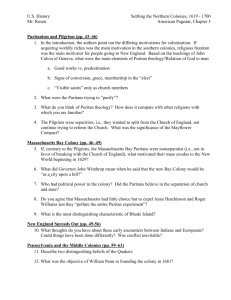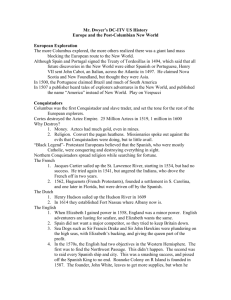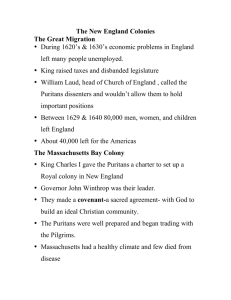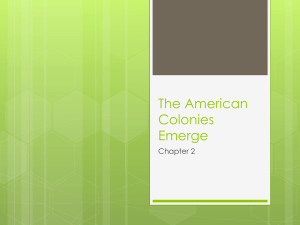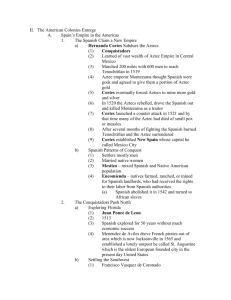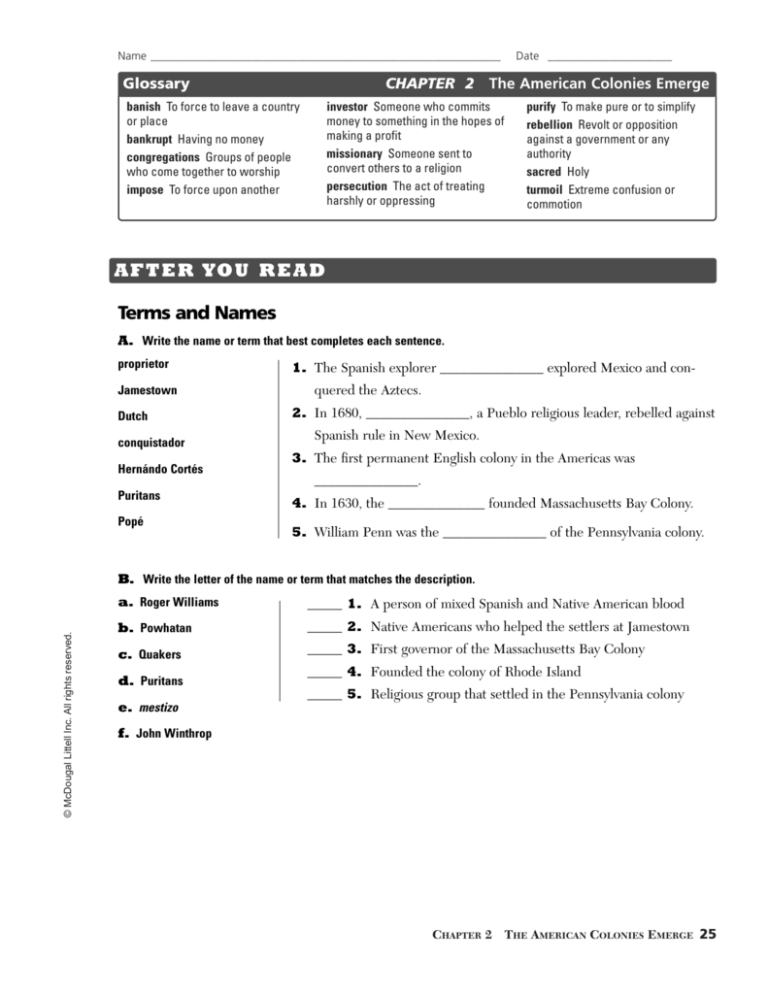
Name ______________________________________________________________
Glossary
Date ______________________
CHAPTER 2 The American Colonies Emerge
banish To force to leave a country
or place
bankrupt Having no money
congregations Groups of people
who come together to worship
impose To force upon another
investor Someone who commits
money to something in the hopes of
making a profit
missionary Someone sent to
convert others to a religion
persecution The act of treating
harshly or oppressing
purify To make pure or to simplify
rebellion Revolt or opposition
against a government or any
authority
sacred Holy
turmoil Extreme confusion or
commotion
AFTER YOU READ
Terms and Names
A. Write the name or term that best completes each sentence.
proprietor
Jamestown
Dutch
conquistador
Hernándo Cortés
Puritans
Popé
1. The Spanish explorer _______________ explored Mexico and conquered the Aztecs.
2. In 1680, _______________, a Pueblo religious leader, rebelled against
Spanish rule in New Mexico.
3. The first permanent English colony in the Americas was
_______________.
4. In 1630, the ______________ founded Massachusetts Bay Colony.
5. William Penn was the _______________ of the Pennsylvania colony.
© McDougal Littell Inc. All rights reserved.
B. Write the letter of the name or term that matches the description.
a. Roger Williams
_____ 1. A person of mixed Spanish and Native American blood
b. Powhatan
_____ 2. Native Americans who helped the settlers at Jamestown
c. Quakers
_____ 3. First governor of the Massachusetts Bay Colony
d. Puritans
e. mestizo
_____ 4. Founded the colony of Rhode Island
_____ 5. Religious group that settled in the Pennsylvania colony
f. John Winthrop
CHAPTER 2 THE AMERICAN COLONIES EMERGE 25
Name ______________________________________________________________
AFTER YOU READ
(cont.)
Date ______________________
CHAPTER 2 The American Colonies Emerge
Main Ideas
1. Why did Native Americans in New Mexico resist the Spanish?
2. Why did the settlement at Jamestown nearly fail?
3. Why did Nathaniel Bacon lead a rebellion against wealthy landowners in Virginia?
4. What did Puritans want to achieve in the Massachusetts Bay Colony?
5. What two things did New Netherland and Pennsylvania have in common?
Answer the following questions on a separate sheet of paper.
1. Compare the relations of the Spanish, the English, and the Dutch with Native Americans.
2. How did the reason for settling Jamestown differ from the reason for settling the Massachusetts Bay Colony?
26 CHAPTER 2 REVIEW
© McDougal Littell Inc. All rights reserved.
Thinking Critically
Answer Key
After You Read
Terms and Names
A.
1. Hernando Cortés
2. Popé
3. Jamestown
4. Puritans
5. proprietor
B.
1. e
2. b
3. f
4. a
5. c
Main Ideas
1. The Spanish destroyed objects that the Native Americans
considered sacred. The Spanish also did not allow the
Native American ceremonies and rituals. The Native
Americans resented Spanish efforts to change their way of
life.
2. Many colonists wanted to get rich quick by finding gold or
furs. They did not take time to grow food. As a result, many
colonists died, and the colony was nearly abandoned.
3. Bacon raised an army to rebel against the wealthy
landowners in Virginia because the wealthy controlled life
in Virginia. Poor settlers had few rights, and the colonial
government offered Bacon and poor settlers little help in
fighting against Native Americans.
4. The Puritans wanted to practice their religion freely and to
create a model society.
5. They both had religious tolerance and good relations with
Native Americans.
Thinking Critically
1. Possible response: The Spanish fought against Native
American societies and conquered them, but some Spanish
settlers intermarried with the Native Americans. The
English fought against the Native Americans and drove
them away. The Dutch, unlike the English, were not
interested in conquering Native Americans but rather
wanted to trade with them.
2. Possible response: Jamestown was started as a business
venture, with hopes of finding wealth; the Massachusetts
Bay Colony was started by Puritans who wanted to practice
their religion freely.

